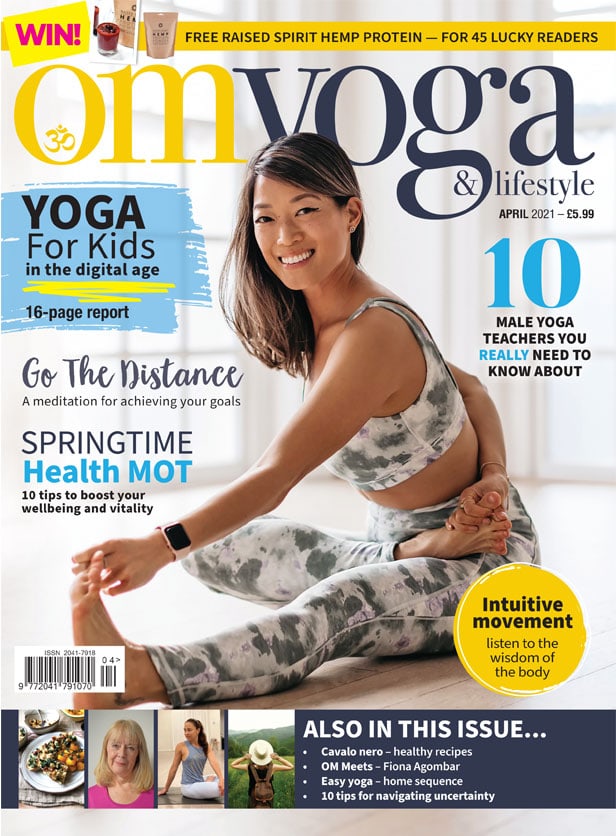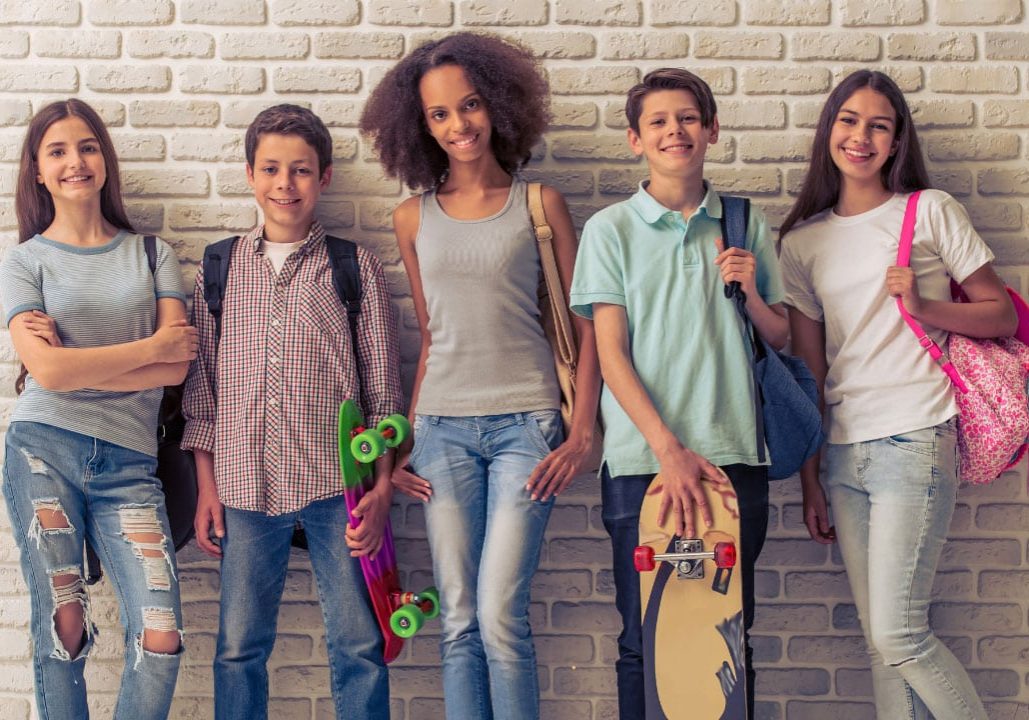
A teen routine
A mat and a wall: your new best friends! By Veronica Greene
The past year has been the hardest year that most of us have ever encountered. For teenagers, this is amplified not only by the threat of the Covid virus but also the uncertainty of your future – when will schools be open, will they close again, will you get to sit exams, when will you see your friends?
Even if you don’t physically feel stressed, you have been in a state of constant ‘alertness’ or state of ‘fight or flight’. This ‘fight or flight’ response is how your body should behave when under threat but it should also be able to down regulate and return to a state of calm, within a reasonable time frame.
Unfortunately, this past year has seemed never ending as we were all bombarded with new information and constant changes to restrictions. This constant stress response in your body can leave you exhausted, unable to concentrate, motivate yourself or, even worse, in a continuous state of anxiety.
What you need is something that will release tension and down regulate your nervous system to find your natural state of ‘rest and digest’, or more simply put – a state of calm! The more often you find this state, the easier it will be for your body to switch between the two.
Medical research, using diagnostic imaging, shows that if a physical movement is performed slowly, with greater awareness to the placement of your limbs and the sensations in your body, then this will stimulate the vagus nerve (a cranial nerve) to trigger your relaxation response.
The following yoga routine will achieve such a response. The movements are slow and strong. The use of a wall (if you don’t have a free wall use the back of a door) allows you to work harder and connect deeper into the major joints of the body. This connection will help you open your chest, build strength in your upper body, arms and legs. More importantly it will activate your body’s relaxation response.
What should you do to calm?
The automatic response, when you feel this nervous energy or lethargy, is to seek forms of exercise that will make your body move and your heart pump faster. While this provides a form of ‘release’ and will give you a temporary endorphin high, it will also keep your nervous system up-regulated!
The routine
This routine is designed as a slow flow sequence, using a wall. Build up slowly – you’ll be amazed how much stronger you become with each repetition. Take a rest in child’s pose between postures, if required. Listen to your breathing which should be slow and rhythmical — and don’t forget to do the last two postures!
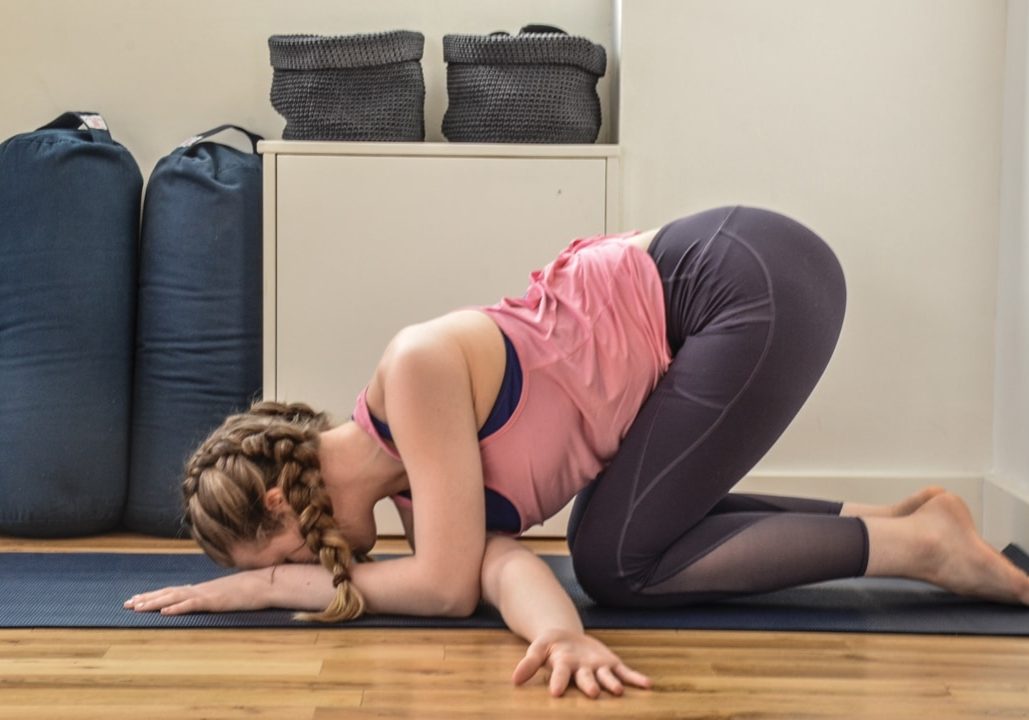
1. Child’s Pose (Variation)
Return to this pose anytime you feel you need to rest.
- Kneel in front of a wall or a door with toes touching the wall and top of foot on the floor.
- Knees hip-distance apart, lower bottom onto heels.
- Stretch arms out in front, fingers spread, palms on the mat, elbows off the ground.
- Ears in line with arms, so head may not touch the floor. (Stay for a couple of minutes feeling any tight spots and focus on breathing steadily and slowly)
2. Elbow Table Top Flow
From child’s pose let your forearms and elbows rest on the floor.
- As you breathe in, lift bottom, move shoulders forward until they are over your elbows.
- As you breathe out, return bottom to heels. (repeat 4-6 times feeling your shoulder and armpit area becoming less tight – then return to child’s pose).
3. Thread the Needle (Variation)
From elbow table top:
- Lift right hand and slide hand and arm behind left elbow, with right palm facing ceiling.
- Keep right arm straight and stretch as far as the arm will go, without letting your body move to the left.
- Return and repeat on other side. (Hold each side for 10-20 seconds)
4. Table Top Flow
From child’s pose:
- As you breathe in, lift bottom, move shoulders until they are over wrists.
- As you breathe out return bottom to heels. (Repeat 4-6 times using the rhythm of your breath)
5. Head Down Dog
From child’s pose:
- Keep hands where they are and come up onto knees.
- Tuck toes under, take your weight into your hands, lift up to a triangle shape.
- Keep legs and arms straight, heels pressing against wall.
- Return to child’s pose. (Repeat 4-6 times using the rhythm of your breath)
6. One Leg Dog
From head down dog:
- Take one leg up the wall with toes tucked under.
- Try to straighten both legs but keep hips in line.
- Return to head down dog and repeat with other leg.
- Return to child’s pose. (Repeat and, over time, work up to 4-6 times)
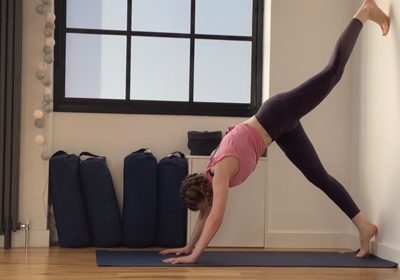
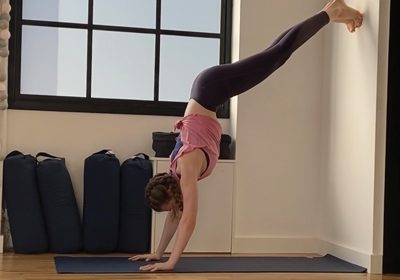
7. No Leg Dog
Once you’ve mastered one leg dog you can try changing legs with both up the wall at the same time (a handstand variation):
- From one leg dog take the other leg up the wall in-line with first.
- Take the leg, that was up first, back to floor. (Repeat and over time you can work up to 4-6 times)
8. Side Plank Pose
From head down dog:
- Turn right foot, on its side, towards left foot, sole of foot against the wall.
- Place left foot on top.
- Take your left hand onto your hip then firm legs by pressing your feet into the wall.
- Have one hip directly above the other and don’t let your bottom stick out!
- Press right hand firmly to the floor and if balanced stretch left hand up with palm facing the same direction you’re facing. (Return to head down dog and repeat on the other side) To help you calm your body before relaxing…1. Repeat table top flow (4-6 times) then 2. Repeat elbow table top flow (4-6 times)
To Rest
9. Legs Up The Wall
- Move your bottom as close to the wall as possible and stretch legs up wall.
- Place hands on your tummy and feel tummy rise as you breath in and lower as you breath out.
- Check your chin is lower than your forehead – this helps your body relax! (Stay as long as possible 5-10 minutes)
Cross Legs Up The Wall
- From legs up the wall cross your legs against the wall. (Stay as long as possible).
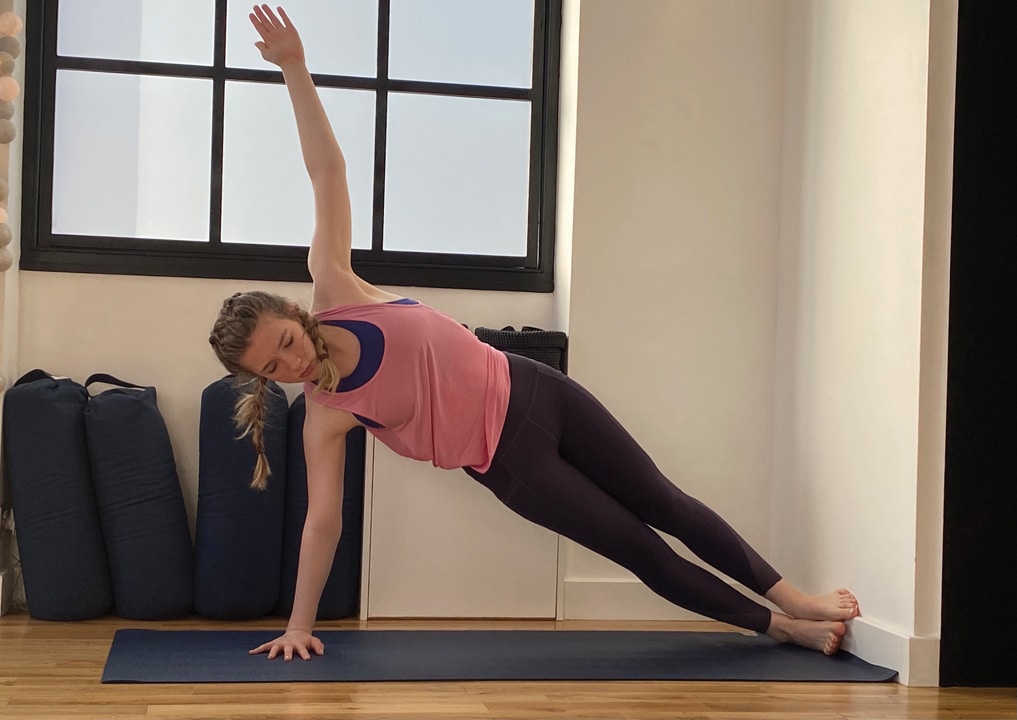
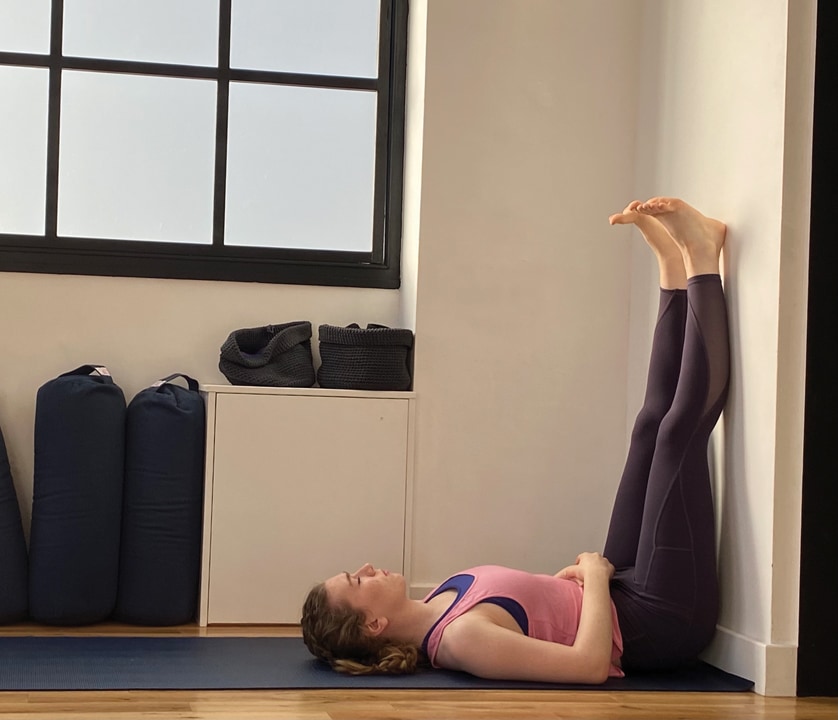
Veronica Greene is the founder of Little Greene Yoga and offers certified teacher training packages for Teen – Mind & Body; Children’s Yoga (3-8yrs & 8-12yrs) and Postnatal Yoga (littlegreeneyoga.com)


